
A spermatozoon is a motile sperm cell produced by male animals relying on internal fertilization. A spermatozoon is a moving form of the haploid cell that is the male gamete that joins with an ovum to form a zygote.

For fertilization to happen between a sperm and egg cell, a sperm must first fuse with the plasma membrane and then penetrate the female egg cell to fertilize it. While the fusion of the sperm cell with the egg cell's plasma membrane is relatively straightforward, penetrating the egg's protective layers, such as the zona pellucida, presents a significant challenge. Therefore, sperm cells go through a process known as the acrosome reaction, which is the reaction that occurs in the acrosome of the sperm as it approaches the egg.
The Sydenham River is a river in Chatham-Kent, Lambton County and Middlesex County in southwestern Ontario, Canada, flowing southwest from its source west of London, Ontario and emptying into Lake Saint Clair. The length of the river is 165 kilometres (103 mi) and it drains a watershed of approximately 2,700 square kilometres (1,000 sq mi). The river flows through the towns of Strathroy and Wallaceburg. It was named after Lord Sydenham, governor of Canada from 1839 to 1841.

The zona pellucida is the specialized area surrounding mammalian oocytes (eggs). It is also known as an egg coat. The zona pellucida is essential for oocyte growth and fertilization.
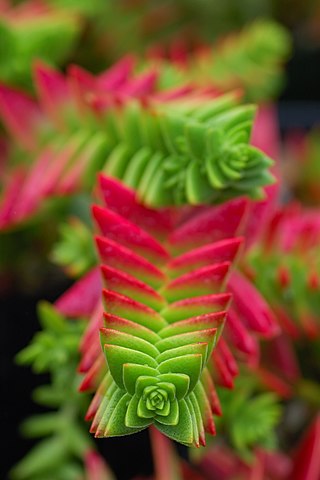
Crassula is a genus of succulent plants containing about 200 accepted species, including the popular jade plant. They are members of the stonecrop family (Crassulaceae) and are native to many parts of the globe, but cultivated varieties originate almost exclusively from species from the Eastern Cape of South Africa.
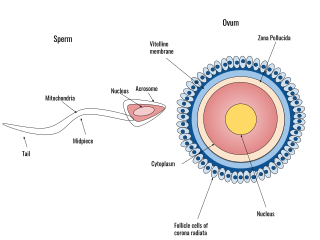
Human fertilization is the union of an egg and sperm, occurring primarily in the ampulla of the fallopian tube. The result of this union leads to the production of a fertilized egg called a zygote, initiating embryonic development. Scientists discovered the dynamics of human fertilization in the 19th century.

Tetraphidaceae is a family of mosses. It includes only the two genera Tetraphis and Tetrodontium, each with two species. The defining feature of the family is the 4-toothed peristome.

Zona pellucida sperm-binding protein 4, ZP-4 or avilesine, named after its discoverer Manuel Avilés Sánchez is a protein that in humans is encoded by the ZP4 gene.
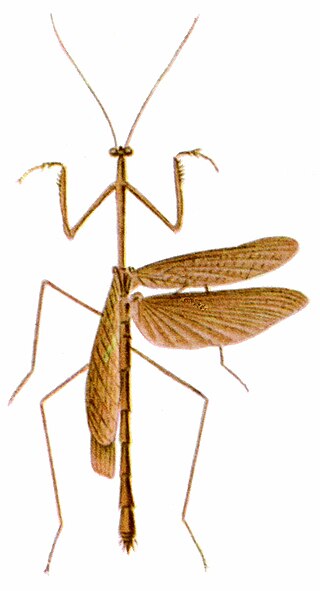
Thesprotia is a genus of mantises commonly known as grass mantis. They are native to the Americas and are represented by the following species:
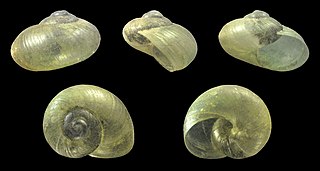
Vitrina pellucida is species of small land snail, a terrestrial pulmonate gastropod mollusk in the family Vitrinidae, the glass snails.
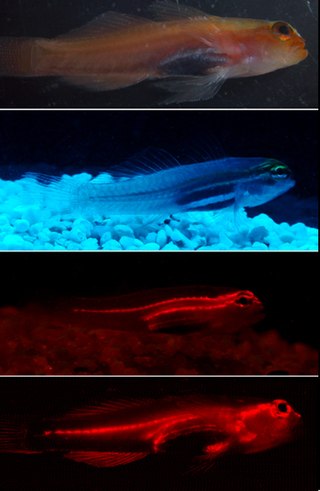
Eviota pellucida, commonly called neon pygmy goby or pellucida pygmy goby, is a species of marine fish in the family Gobiidae.

Amorphoscelis is a genus of praying mantis in the family Amorphoscelidae; records of occurrence are from Africa and tropical Asia.
Teuthowenia pellucida, the googly-eyed glass squid, is a rare deep-sea glass squid whose habitat ranges throughout the oceans of the Southern Hemisphere.

Folliculogenesis-specific basic helix-loop-helix, also known as factor in the germline alpha (FIGalpha) or transcription factor FIGa, is a protein that in humans is encoded by the FIGLA gene. The FIGLA gene is a germ cell-specific transcription factor preferentially expressed in oocytes that can be found on human chromosome 2p13.3.

Carronella pellucida is a species of sea slug, an aeolid nudibranch, a marine heterobranch mollusc in the family Flabellinidae. It is occasionally referred to as the milky white sea slug, the pellucid aeolid, or the red-gilled nudibranch, though these names are not commonly accepted in formal settings.
Parastagmatoptera pellucida is a species of praying mantis in the family Mantidae.

Geminaria canalis is a species of bee flies in the family Bombyliidae that occurs in southwestern North America.

Geminaria is a genus of bee flies.
Toxophora pellucida is a species of bee fly in the family Bombyliidae.
Fannia pellucida is a species of fly in the family Fanniidae.














